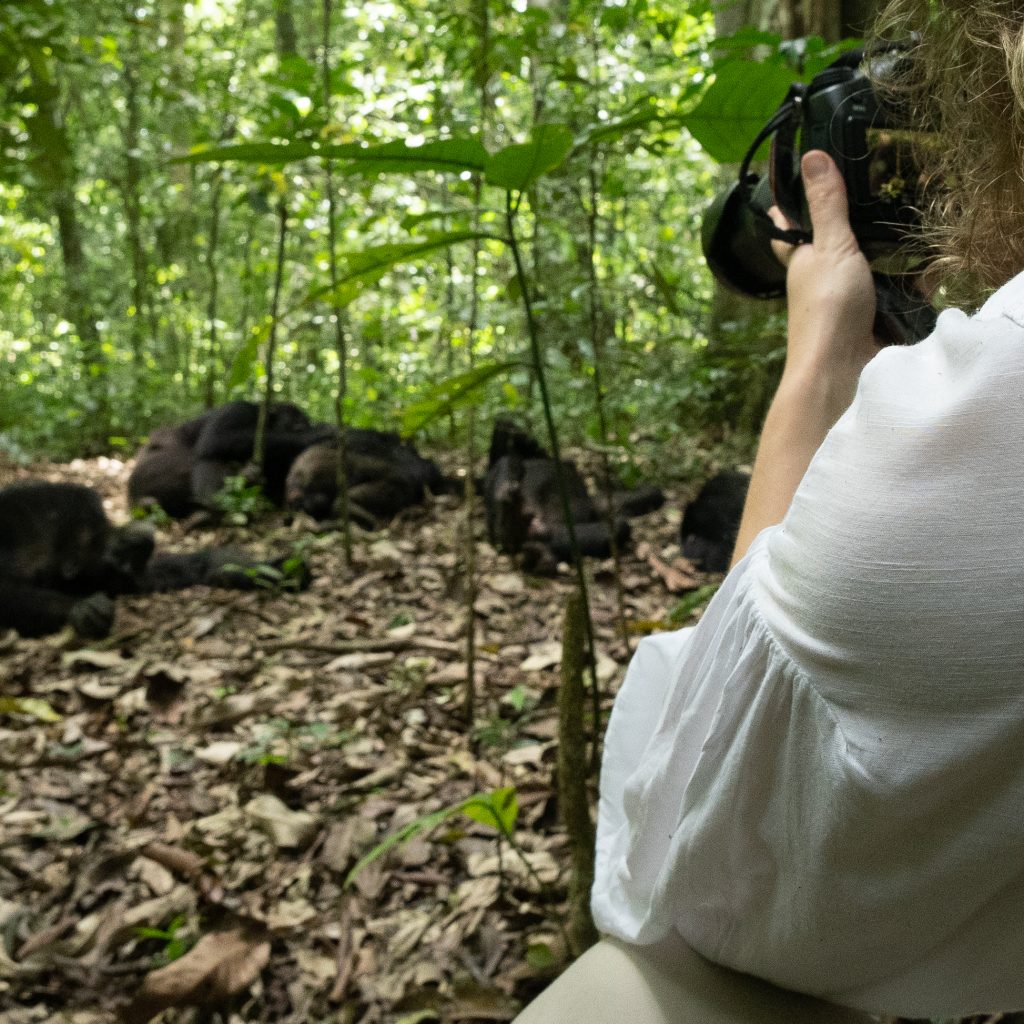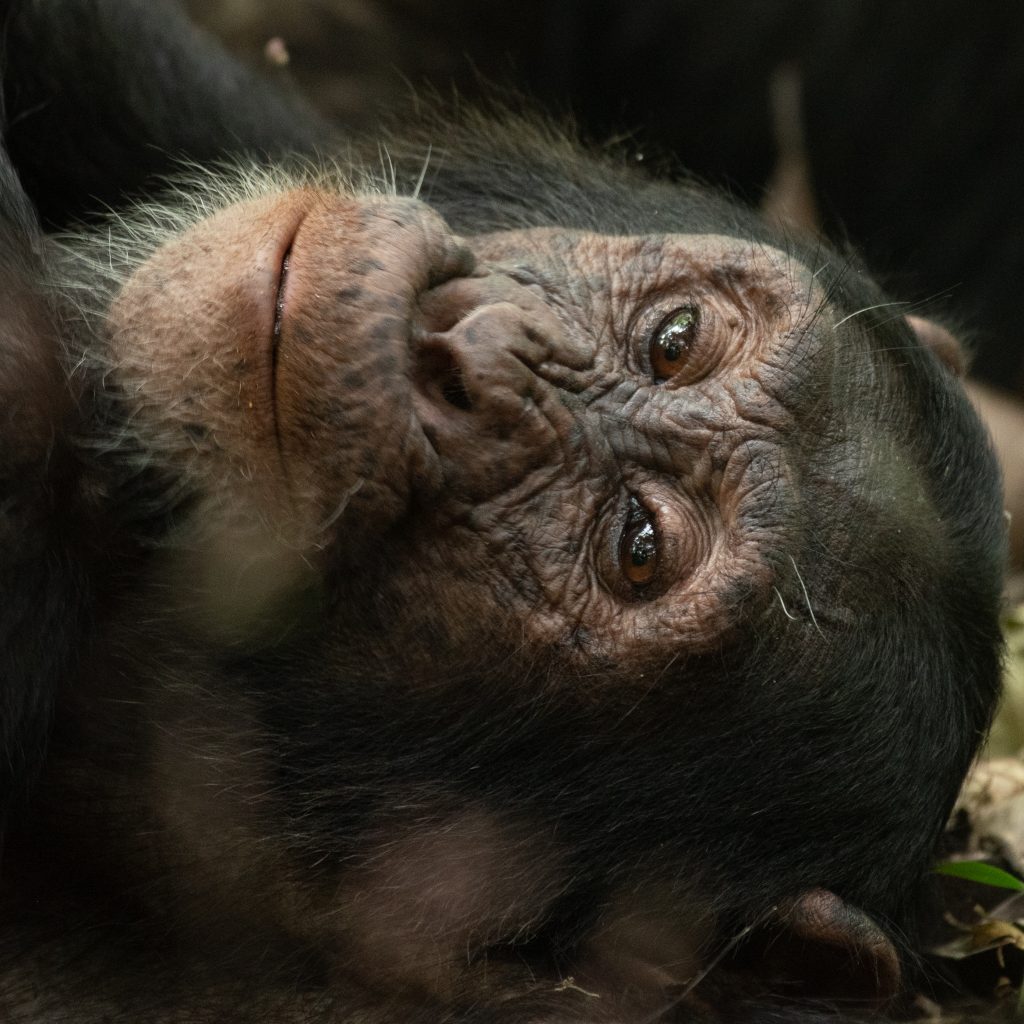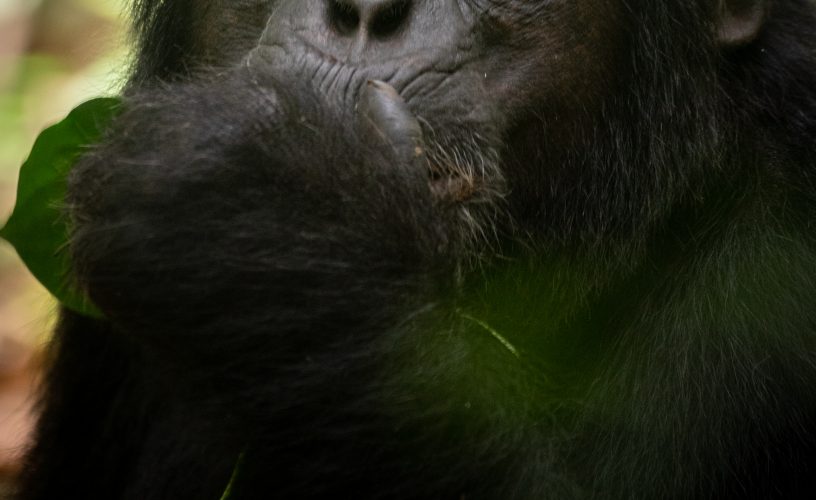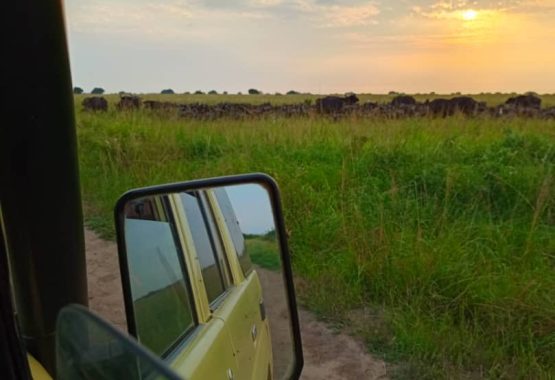Chimpanzees in Uganda
Uganda, often hailed as the “Pearl of Africa,” stands as a testament to the breathtaking diversity of landscapes and wildlife that this East African nation has to offer. Among the many wonders that captivate the imagination of travelers worldwide are the chimpanzees, our closest living relatives in the animal kingdom. In this extensive exploration, we embark on a journey through time, tracing the evolutionary history of chimpanzees, understanding the specific species found in Uganda, unraveling the intricate social structures of these fascinating creatures, and immersing ourselves in the unparalleled experience of encountering them in their natural habitat.
Chimpanzee Evolution and Species
The evolutionary narrative of chimpanzees, members of the great ape family, unfolds as a captivating tale that stretches back approximately 5 to 7 million years to a common ancestor with humans. Sharing an astonishing 98% of their DNA with us, chimpanzees have evolved into four subspecies, each with its unique characteristics and geographic distribution. In the verdant forests of Uganda, the Eastern Chimpanzee (Pan troglodytes schweinfurthii) takes center stage, offering a glimpse into the evolutionary journey that has shaped these intelligent and socially complex beings.

Chimpanzee Social Structures and Ways of Life:
Chimpanzees are renowned for their highly social and intelligent nature, living in complex communities led by an alpha male. These communities, which can range in size from 15 to 150 individuals, exhibit a sophisticated social structure characterized by alliances, friendships, and conflicts. Communication plays a pivotal role in their daily lives, involving intricate vocalizations, gestures, and facial expressions.
Observing chimpanzees in their natural habitat provides a unique opportunity to witness a wide spectrum of behaviors, from tool use and hunting to cooperative activities like grooming. The similarities between chimpanzee and human societies are striking, offering researchers and enthusiasts alike a chance to deepen their understanding of the shared evolutionary roots between humans and our primate relatives.
Where to Find Chimpanzees in Uganda:
Uganda boasts several prime locations for chimpanzee trekking, providing enthusiasts with the opportunity to witness these captivating primates in their natural surroundings. Among the notable locations are:
- Kibale Forest National Park: Nestled in western Uganda, Kibale Forest is a haven for chimpanzee enthusiasts. This park hosts one of the highest concentrations of primates in Africa, with over 1,400 chimpanzees roaming its lush expanse. Guided chimpanzee trekking tours offer a chance to traverse the dense forest, increasing the likelihood of encountering these remarkable creatures.
- Budongo Forest Reserve: Situated within Murchison Falls National Park, Budongo Forest is another hotspot for chimpanzee tracking. The reserve is home to a habituated chimpanzee community, providing an ideal destination for those seeking an immersive and personal experience with these intelligent primates.
- Queen Elizabeth National Park: The Kyambura Gorge in Queen Elizabeth National Park is renowned for its population of habituated chimpanzees. Trekking through this scenic gorge offers a unique opportunity to observe chimpanzees against the stunning backdrop of the park’s diverse landscapes.
How to Access Chimpanzee Habituation in Uganda:
Chimpanzee trekking and habituation experiences are typically organized by licensed tour operators and national park authorities. To embark on this remarkable journey, visitors must secure permits, which may have limited availability and are best obtained in advance. The trekking experience involves guided walks through the forest, with expert trackers leading the way to where the chimpanzee communities are most active.

Responsible tourism is crucial during chimpanzee encounters to minimize disturbance and ensure the well-being of these endangered species. Visitors must adhere to ethical guidelines, maintaining a respectful distance, avoiding direct eye contact, and minimizing noise to create a non-intrusive and enjoyable experience for both humans and chimpanzees.
Other Attractions Worth Exploring in Uganda:
Beyond the realm of chimpanzee encounters, Uganda offers a plethora of attractions that showcase its rich biodiversity and cultural heritage. Some additional highlights include:
- Bwindi Impenetrable Forest National Park: Renowned for its population of endangered mountain gorillas, Bwindi is a UNESCO World Heritage Site and a biodiversity hotspot. Gorilla trekking experiences complement chimpanzee encounters, providing a comprehensive primate safari.
- Queen Elizabeth National Park: This park is a mosaic of ecosystems, featuring savannas, wetlands, and dense forests. Wildlife enthusiasts can enjoy game drives to spot lions, elephants, hippos, and a variety of bird species.
- Rwenzori Mountains: The Rwenzori Mountains, often referred to as the “Mountains of the Moon,” provide a stunning backdrop to Uganda’s landscape. Hiking trails offer adventurous travelers the chance to explore alpine meadows, glaciers, and unique flora.
- Source of the Nile: Jinja, located at the source of the Nile River, offers a serene escape and exciting water activities. Visitors can enjoy boat rides, white-water rafting, and bungee jumping while taking in the breathtaking scenery.
Conclusion:
Chimpanzees in Uganda represent the convergence of adventure, conservation, and scientific discovery. Their presence in the country’s verdant forests not only provides an opportunity to connect with our evolutionary past but also offers a chance to explore the diverse landscapes and cultures that make Uganda a truly enchanting destination. As travelers venture into the heart of chimpanzee territory, they not only witness the wonders of primate life but also contribute to the preservation of these extraordinary creatures and their habitats.
Uganda, with its rich tapestry of wildlife and natural beauty, beckons those seeking an immersive and enlightening journey into the wonders of the animal kingdom. The conservation efforts and responsible tourism initiatives in place ensure that future generations can continue to marvel at the remarkable chimpanzees and the unparalleled biodiversity that defines this East African gem.




